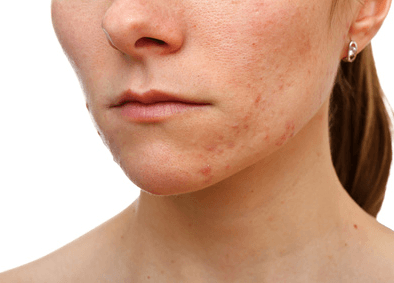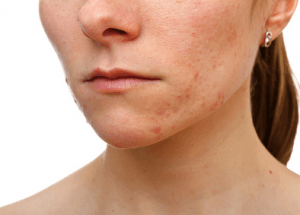
Your hormones are important for making sure different parts of your body work together, as well as for regulating activity levels of most of the organs including the heart, brain, liver and gut.
For women, these chemical compounds can have powerful effects on the menstrual and ovulation cycles, as well as essential functions like arousing sexual desire, keeping the bones healthy, developing muscle mass, controlling mood, and our response to stress and even weight management.
There are a long list of health issues that can arise when hormones are out of whack, whether your estrogen levels or progesterone levels are lower or higher than they should be.
As early as 35, but typically in your 40s, your hormones will start to betray you. Of course, peri-menopause and menopause aren’t the only reasons this can happen. Thyroid issues, diabetes, medications like birth control pills, pregnancy, and lifestyle factors such as a poor diet, lack of regular sleep and exercise, as well as stress, can all disturb hormone levels.
While each woman is different, these 8 symptoms are the most common signs that your hormones may be betraying you:
- A low sex drive and/or vaginal dryness
- Irregular periods
- Fatigue, insomnia and/or night sweats
- Mood swings, increased anxiety or depression
- Dry skin, signs of premature aging or acne
- Concentration difficulties and memory lapses
- Arthritis or joint pain, headaches or migraines
- Increased facial hair growth, thinning hair or excessive hair loss
While your doctor may prescribe synthetic hormones, birth control pills or even an antidepressant, all of these options come with a long list of side effects. Some women experience more severe side effects than what they’ve been suffering due to a hormonal imbalance.
If you’d like to try and get them back in line naturally, there are a number of actions that you can take.
Your diet
Consume as many fresh, organic fruits and vegetables as possible; avoiding pesticides and herbicides is essential. Increase your intake of foods that are rich in omega-3 fatty acids, like wild-caught salmon, nuts and seeds as well as organic cold-pressed olive oil and flaxseed oil. If you haven’t added coconut oil to your diet, this is also a must as it provides important building blocks for hormone production.
Avoid processed foods and fast foods including things like luncheon meat, prepackaged foods, white bread, frozen meals and sweets. You should also limit your caffeine and alcohol consumption. Stay hydrated by drinking at least 8 glasses of water each day.
Herbs
Certain herbs can also help balance hormones, such as evening primrose oil which is known to help decrease anxiety, irritability, headaches and mood swings. Maca root is effective for many women for reducing menopausal symptoms.
This is a type of tuber, much like a potato, that grows high in the Andes Mountains of Peru; it can be purchased at health food stores or online in powder, extract or capsule form.
Exercise
Regular physical activity can maintain or help achieve more balanced hormones. It will help trigger the release of hormones like serotonin, and endorphins that can improve your mood as well as your overall health and well-being. Short bursts of heavy weight lifting such as kettlebells, deadlifts, squats and lunges can be especially beneficial.
Sleep
Quality shut-eye is another important factor for keeping hormones in balance. Without enough sleep the levels of the hormone leptin decrease, causing an increased appetite as well as sluggishness and difficulty focusing the next day.
 Incorporate some type of stress-relieving and relaxation techniques into your day, such as meditation, deep breathing, massage therapy or yoga. Meditation can be especially effective as it helps to improve the interaction of the mind and body; studies have shown that women who practice meditation experience fewer hormonal mood swings than those who don’t.
Incorporate some type of stress-relieving and relaxation techniques into your day, such as meditation, deep breathing, massage therapy or yoga. Meditation can be especially effective as it helps to improve the interaction of the mind and body; studies have shown that women who practice meditation experience fewer hormonal mood swings than those who don’t.
While transforming to a healthier lifestyle may seem like a lot more work than taking a pill, in the long run it is much more effective and much better for your health!
-The Alternative Daily

